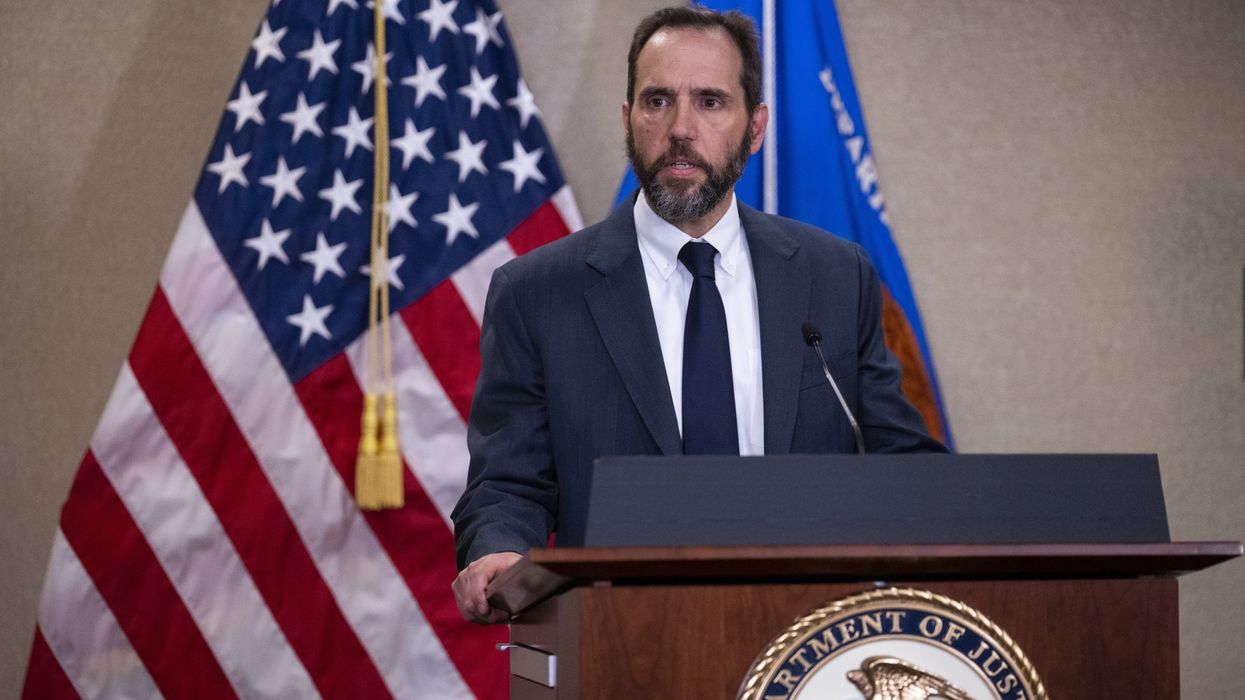November, 08 2012, 02:35pm EDT

Ithaca, N.Y., Joins Dozens of Cities Urging Climate Change Action
In Frankenstorm Sandy's Wake, City Backs Use of Clean Air Act Against Greenhouse Gas Pollution
ITHACA, N.Y.
In the aftermath of Hurricane Sandy, Ithaca, N.Y., became the 41st city to officially urge use of the Clean Air Act to cut greenhouse gas pollution that is raising the risk of extreme weather events and worsening climate change. The Ithaca City Council passed a resolution Wednesday, joining cities such as Pittsburgh, Chicago and Detroit as part of the Center for Biological Diversity's national Clean Air Cities campaign.
"Hurricanes Irene and Sandy devastated our state, and the severity of these extreme weather events in our own backyard make it clear that we need to move fast to cut carbon emissions," said James Underberg, one of the Center's volunteer clean air advocates and founder of the Roosevelt Institute at Cornell University, which spearheaded the resolution's passage in Ithaca. "I'm proud to live in a city that recognizes both the urgency of the climate crisis and the solution that exists in the Clean Air Act, if we use it ambitiously and without delay."
Hurricane Sandy, dubbed the "Frankenstorm," has drawn renewed attention to extreme weather concerns. Global warming loads storms with more energy and more rainfall, scientists say; a new study in the Proceedings of the National Academy of Sciences found that Katrina-magnitude Atlantic hurricanes have been twice as likely in warm years as in cold years. Global ocean temperatures hit their second-highest level on record in September, according to the National Oceanic and Atmospheric Administration.
"As President Obama moves into his second term, he needs to follow the lead of the 40-plus cities that have passed Clean Air Cities resolutions and embrace the fierce urgency of fighting climate change and extreme weather," said Rose Braz, the Center's climate campaign director. "We know that global warming is making storms stronger. The threat will keep growing until we start taking effective action against greenhouse gas pollution. To avert a climate catastrophe, we need to make full use, as soon as possible, of the Clean Air Act."
The Center's Clean Air Cities campaign is working around the country to encourage cities to pass resolutions supporting the Clean Air Act and using the Act to reduce carbon in our atmosphere to no more than 350 parts per million, the level scientists say is needed to avoid catastrophic climate change.
Similar resolutions have been approved in Albany, N.Y.; Berkeley, Santa Monica, Culver City, Arcata, Oxnard, Santa Cruz, Richmond, San Francisco and Los Angeles, Calif.; Seattle, Wash.; Pittsburgh and Philadelphia, Pa.; Tucson, Ariz.; Boone, N.C.; Keene, N.H.; Minneapolis, Minn.; Milwaukee and Madison, Wis.; Cambridge and Northampton, Mass.; Cincinnati and Oberlin, Ohio; Santa Fe, N.M.; Kansas City, Mo.; Salt Lake City, Utah; Miami, Pinecrest, Tampa and Gulfport, Fl.; Chicago, Ill.; Teton County, Wyo.; Eugene, Ore.; Boulder, Colo.; Burlington, Vt.; and Detroit, Mich.; Wilmington, Del.; Providence, R.I.; Gary, Ind., and Woodbridge, N.J. Several other cities around the country will be considering resolutions over the next few months.
Learn more about the Center's Clean Air Cities campaign and get the facts about the Clean Air Act.
At the Center for Biological Diversity, we believe that the welfare of human beings is deeply linked to nature — to the existence in our world of a vast diversity of wild animals and plants. Because diversity has intrinsic value, and because its loss impoverishes society, we work to secure a future for all species, great and small, hovering on the brink of extinction. We do so through science, law and creative media, with a focus on protecting the lands, waters and climate that species need to survive.
(520) 623-5252LATEST NEWS
'A National Disgrace': 19 States to Raise Minimum Wage But Federal Rate Stuck at $7.25
One Fair Wage noted that "tipped workers can still legally be paid as little as $2.13 an hour, a system advocates describe as a direct legacy of slavery."
Dec 31, 2025
Over a third of US states are set to raise their minimum hourly wage in 2026, but worker advocates including Sen. Bernie Sanders on Wednesday decried a federal minimum wage that's remained at $7.25 since 2009—and just $2.13 an hour for tipped workers for over three decades.
Minimum wage hikes are set to go into effect in 19 states on Thursday: Arizona, California, Colorado, Connecticut, Hawaii, Maine, Michigan, Minnesota, Missouri, Montana, Nebraska, New Jersey, New York, Ohio, Rhode Island, South Dakota, Vermont, Virginia, and Washington.
Increases range from 28 cents in Minnesota to $2 in Hawaii, with an average hike of 67 cents across all 19 states. More than 8.3 million workers will benefit from the increases, according to the Economic Policy Institute (EPI). The mean minimum wage in those 19 states will rise to $14.57 in 2026, up from $13.90 this year.
Three more states—Alaska, Florida, and Oregon—plus Washington, DC are scheduled to raise their minimum wages later in 2026.
In addition to the state hikes, nearly 50 counties and municipalities plan to raise their minimum wages in the coming year, according to the National Employment Law Project (NELP). These include San Diego, California—where the minimum wage for hospitality workers is set to rise to $25 an hour by 2030—and Portland, Maine, where all workers will earn at least $19 by 2028.
However, the federal minimum wage remains at $7.25, and the subminimum rate for tipped workers is $2.13, where it's been since 1991—and has lost more than half its purchasing power since then.
The federal minimum wage has stayed at $7.25 since 2009. In 2026, workers in 19 states and 49 cities and counties an increase. Alabama’s rate will stay at $7.25. 🔗 https://t.co/mrGfPAKba3 pic.twitter.com/EsokVIc6KP
— AL.com (@aldotcom) December 31, 2025
"Tipped workers can still legally be paid as little as $2.13 an hour, a system advocates describe as a direct legacy of slavery," the advocacy group One Fair Wage (OFW) said in a statement Tuesday.
Sanders (I-Vt.) said on social media on the eve of the hikes: "Congratulations to the 19 states raising the minimum wage in 2026. But let’s be clear: A $7.25 federal minimum wage is a national disgrace. No one who works full time should live in poverty. We must keep fighting to guarantee all workers a living wage—not starvation wages."
Yannet Lathrop, NELP's senior researcher and policy analyst, said earlier this month that "the upcoming minimum wage increases are incremental and won’t magically turn severely underpaid jobs into living-wage jobs, but they do offer a bit of relief at a time when every dollar matters for people."
“The bigger picture is that raising the minimum wage is just one piece of a much larger fight for a good jobs economy rooted in living wages and good benefits for every working person," Lathrop added. "That’s where we need to get to."
Numerous experts note that neither $7.25, nor even $15 an hour, is a livable wage anywhere in the United States.
"The gap between wages and real living costs is stark," OFW said. "According to the MIT Living Wage Calculator, there is no county in the United States where a worker can afford to meet basic needs on less than $25 an hour. Even in the nation’s least expensive counties, a worker with one child would need at least $33 an hour to cover essentials like rent, food, childcare, and transportation."
"Advocates argue that policies like President [Donald] Trump’s 'no tax on tips' proposal fail to address the underlying problem of poverty wages," OFW continued. "While the policy has drawn attention, they say it is a headline rather than a solution, particularly since nearly two-thirds of tipped workers do not earn enough to owe federal income taxes."
Frustrated by the long-unchanged $7.25 federal minimum wage, numerous states in recent years have let voters give themselves raises via ballot initiatives. Such measures have been successful even in some red states, including Missouri and Nebraska.
Rising minimum wages are a legacy of the union-backed #FightFor15 movement that began among striking fast-food workers in 2012. At least 20 states now have minimum wages of $15 or higher.
However, back then, "the buying power of a $15 minimum wage was substantially higher than it is today," EPI noted. "In 2025, a $15 minimum wage does not achieve economic security for working people in most of the country. This is particularly true in the highest cost-of-living cities."
In April, US senators voted down an amendment that would have raised the federal minimum wage to $17 an hour. Every Democratic and Independent upper chamber lawmaker voted in favor of the measure, while all Republicans except Sen. Josh Hawley (Mo.) rejected it.
As Trump administration and Republican policies and practices—such as passing healthcare legislation that does not include an extension of Affordable Care Act tax credits, which are set to expire on Wednesday and send premiums soaring—coupled with persistently high living costs squeeze workers, advocates say a living wage is more important than ever.
The issue is underscored by glaring income and wealth inequality in the US, as well as a roughly 285:1 CEO to worker pay gap among S&P 500 companies last year.
"Minimum wage doesn't cover the cost of living," Janae van De Kerk, an organizer with the Service Employees International Union (SEIU) Airport Workers union and Phoenix Sky Harbor International Airport employee, said in a video posted Tuesday on social media.
"Minimum wage doesn't cover the cost of living. Many of my co-workers have to choose between food on the table or health insurance" Janae, Phoenix Sky Harbor Airport service worker No one should have to make that choice.
[image or embed]
— Airport Workers United (@goodairports.bsky.social) December 30, 2025 at 10:34 AM
"Many of my co-workers have to choose between food on the table or health insurance, or the choice between having food and paying the electric bill," van De Kerk—who advocates a $25 hourly minimum wage—continued.
"We shouldn't have to worry about those things," she added. "We shouldn't have to stress about those things. We're willing to work and we wanna work, and we should be paid for our work."
Keep ReadingShow Less
Trump Says National Guard to Leave Chicago, LA, and Portland, But 'Will Come Back'
Accusing "a president desperate to be king" of using troops "as political pawns," California's attorney general noted the announcement followed "a stinging rebuke by the Supreme Court."
Dec 31, 2025
After a series of losses in court, President Donald Trump ended 2025 with an announcement that he is pulling the plug on legally contested National Guard deployments in three major US cities—but he also pledged that troops will return in the new year.
Trump initially sent thousands of California National Guard members to Los Angeles in June amid protests against his violent immigration operations. The remaining troops left the city earlier this month in response to a pair of orders from a district judge and the US Court of Appeals for the 9th Circuit.
The president also tried to deploy National Guard members to the streets of two other Democrat-led cities—Portland, Oregon, and Chicago, Illinois—but those moves were blocked by lawsuits, including one that produced a US Supreme Court decision last week.
Throughout the president's push to deploy troops to these and other cities, he has circulated lies about crime rates. He did so again in the Wednesday announcement on his Truth Social platform, writing, "We are removing the National Guard from Chicago, Los Angeles, and Portland, despite the fact that CRIME has been greatly reduced by having these great Patriots in those cities, and ONLY by that fact."
"Portland, Los Angeles, and Chicago were GONE if it weren’t for the Federal Government stepping in," Trump claimed. "We will come back, perhaps in a much different and stronger form, when crime begins to soar again - Only a question of time! It is hard to believe that these Democrat Mayors and Governors, all of whom are greatly incompetent, would want us to leave, especially considering the great progress that has been made???"
California Gov. Gavin Newsom, a Democrat expected to run for president in 2028, said on social media Wednesday that it is "about time Donald Trump admitted defeat. We've said it from day one: The federal takeover of California's National Guard is illegal."
Newsom and the state's attorney general, Rob Bonta, challenged the LA deployment. In that case, the US Department of Justice on Tuesday filed a brief with the 9th Circuit withdrawing its motion to keep the California troops under federal control.
"For six months, CA National Guard troops have been used as political pawns by a president desperate to be king," Bonta said Wednesday. "Now, in the face of a stinging rebuke by the Supreme Court, the Trump administration is backing away from its effort to federalize and deploy CA National Guard troops."
Although that Supreme Court decision was not directly about California, the justices' rejection of the Trump administration's request to strike down a temporary restraining order that barred the Illinois deployment was expected to inform other cases.
Trump federalized Illinois and Texas national guard troops to patrol in Chicago, but Illinois quickly sued and won a court ruling keeping them out of the city. The troops did training exercises instead. Today, Trump claims that the guard "greatly reduced" crime in Chicago. Did they do it remotely?
[image or embed]
— Mark Jacob (@markjacob.bsky.social) December 31, 2025 at 4:24 PM
Illinois Gov. JB Pritzker, another Democrat who may run for the Oval Office in the next cycle, also pointed to the recent ruling in his response to the president on Wednesday: "Donald Trump's lying again. He lost in court when Illinois stood up against his attempt to militarize American cities with the National Guard. Now Trump is forced to stand down."
"Illinois and Chicago have reduced crime with smart investments in police and community violence reduction programs," he continued. "Meanwhile, Trump cut federal support for both. No matter how many lies he tells, we will keep standing up for truth and against his abuse of power."
Ahead of Trump's announcement, the New Republic's Greg Sargent said that the president and his deputy chief of staff, Stephen Miller, "are actually failing in crucial ways. Deportations are lagging behind their goals, courts are mostly functioning, and their fascist, ethnonationalist cruelties have unleashed a countermobilization of unexpected scope and power."
After the new Truth Social post, Sargent added: "Trump just announced that he's pulling the National Guard out of Chicago, LA, and Portland while pretending he won some kind of big victory. Here's the reality: Their authoritarian designs have faced massive civil and popular resistance."
Keep ReadingShow Less
New Year's Eve Dump: House Releases Video and Transcript of Jack Smith Deposition
"There is no historical analog for what President Trump did in this case," Smith told members of the House Judiciary Committee.
Dec 31, 2025
Republicans on the House Judiciary Committee on Wednesday released both the transcript and video of former special counsel Jack Smith's December 17 testimony about his criminal cases against President Donald Trump that were shut down last year after Trump won the 2024 presidential election.
The release, which occurred as millions of Americans were preparing to celebrate New Year's Eve, revealed fresh insights into Smith's investigation and prosecution of the president, who had been indicted on charges related to the unlawful retention of top-secret government documents and his bid to illegally remain in power after losing the 2020 presidential election.
Among other things, Smith testified that he believed that Trump's false claims about fraud in the 2020 election were not protected by the First Amendment of the US Constitution because they were aimed at disrupting the certification of the election results on January 6, 2021, when Trump supporters violently stormed the US Capitol building and send lawmakers fleeing for their lives.
"There is no historical analog for what President Trump did in this case," Smith emphasized. "As we said in the indictment, he was free to say that he thought he won the election. He was even free to say falsely that he won the election. But what he was not free to do was violate federal law and use... knowingly false statements about election fraud to target a lawful government function."
Smith also testified that he and his team sought gag orders against Trump because the then-former president "was making statements that were endangering witnesses, intimidating witnesses, endangering members of my staff, endangering court staff."
Smith also said that he would "make no apologies" for requesting a gag order against Trump.
When asked about his decision to subpoena phone records of US senators during his investigation, Smith laid out why Trump had left him with no other option.
"I think who should be accountable for this is Donald Trump," he said. "These records are people, in the case of the senators, Donald Trump directed his co-conspirators to call these people to further delay the proceedings. He chose to do that. If Donald Trump had chosen to call a number of Democratic senators, we would have gotten toll records for Democratic senators. So responsibility for why these records, why we collected them... that lies with Donald Trump."
Commenting on the timing of the release, New York University law professor Ryan Goodman called it "an obvious attempt" by House Republicans to "bury" the information that Smith delivered during his testimony.
Keep ReadingShow Less
Most Popular


